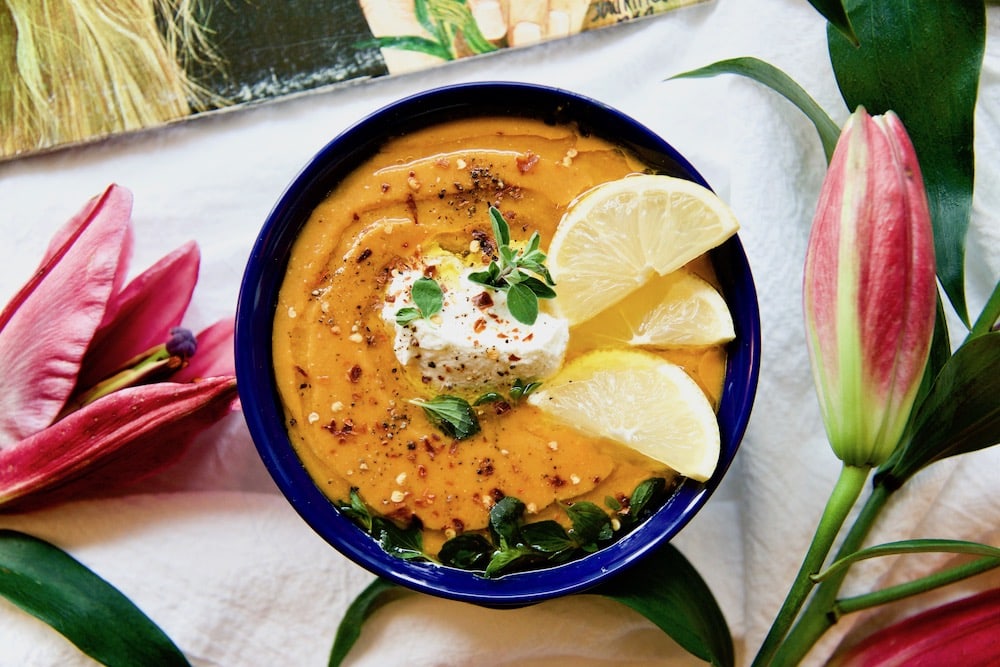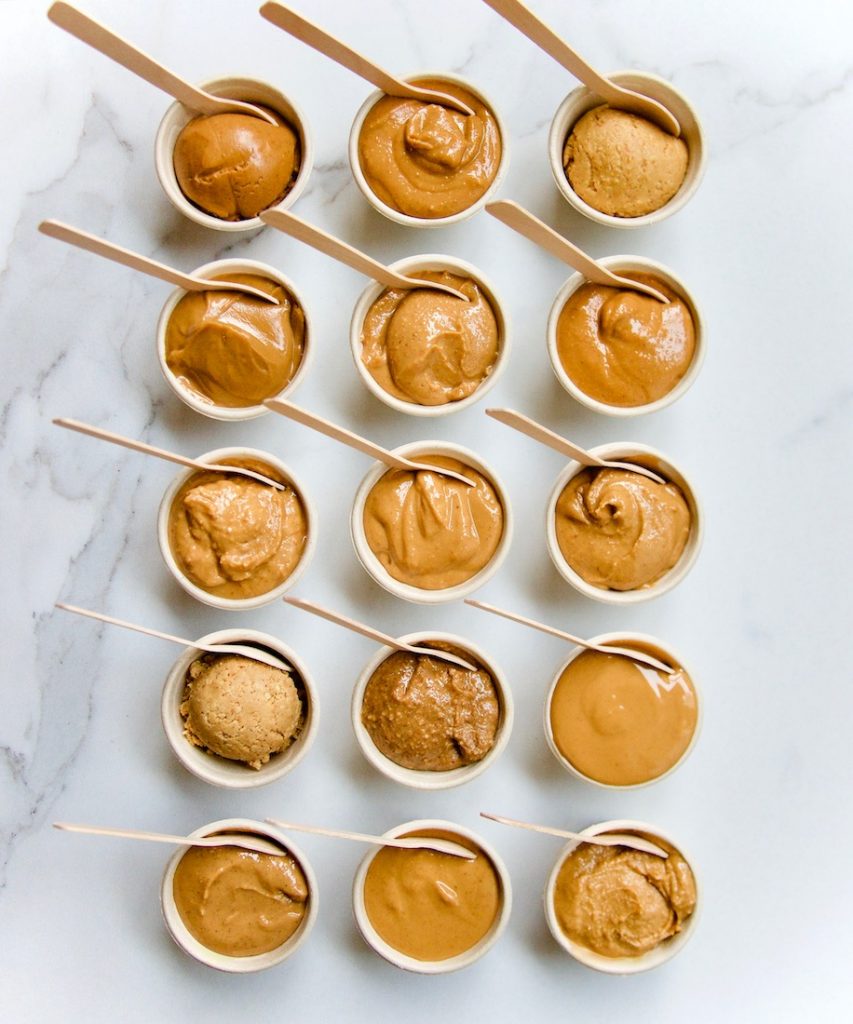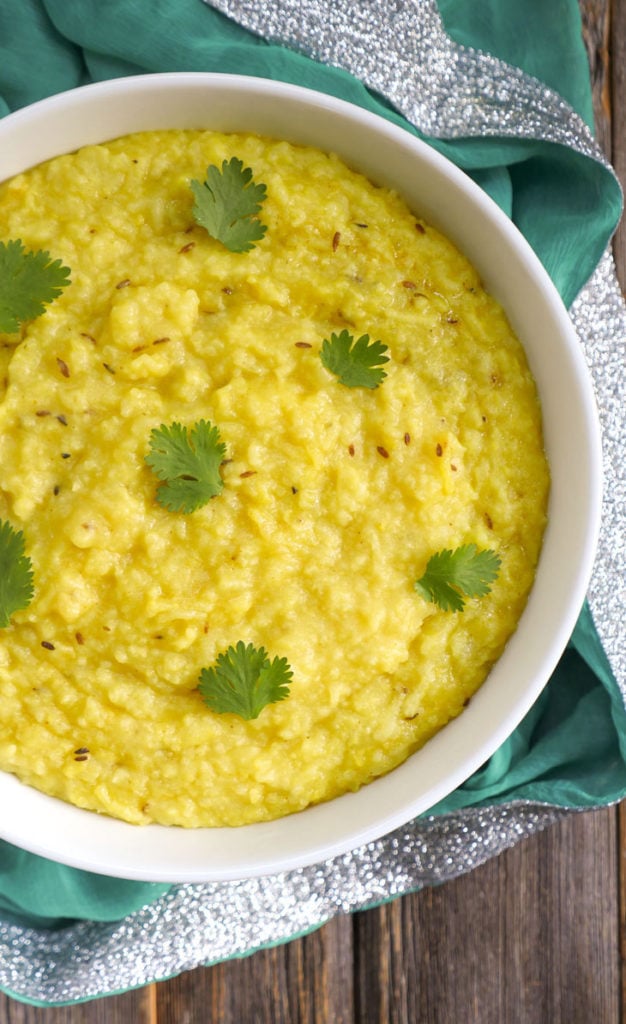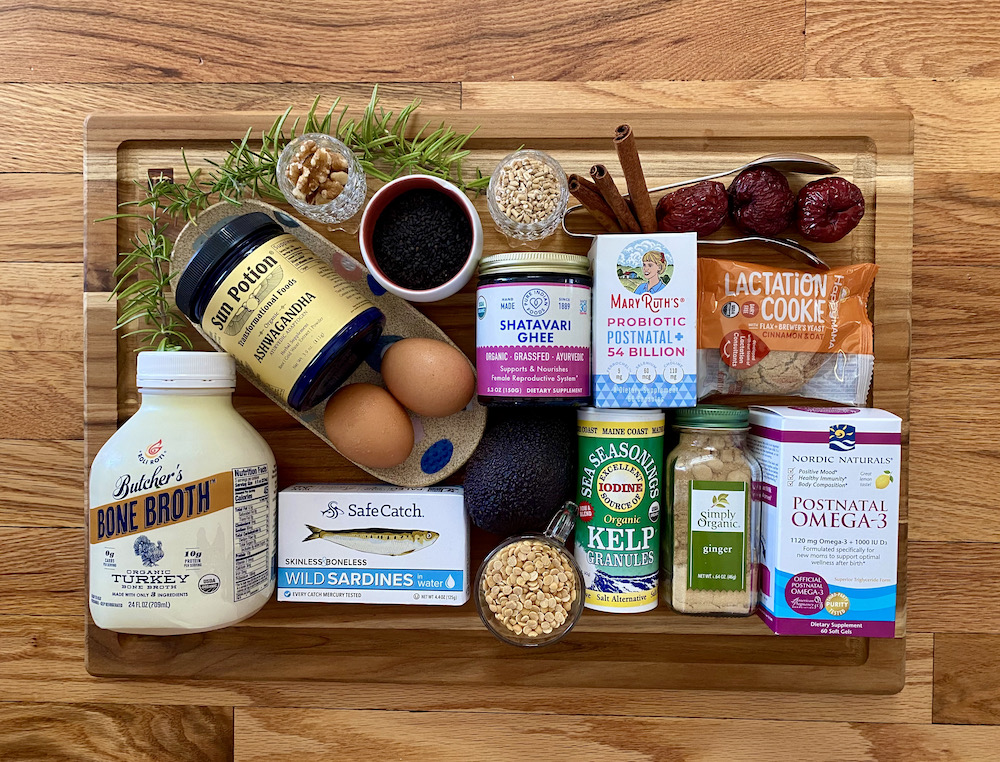The postpartum period is one of life’s most truly challenging phases. Postpartum nutrition– aka nutrition during the first 40 days after delivering a baby– plays a huge role in how well new moms heal and prepare their bodies for this next critical phase of nurturing and developing along with their baby. Thus, it’s worth paying attention to with as much care as most people spend thinking about their diet during pregnancy.
Accordingly, the below principles, tips, and advice for nutrition during the postpartum period are all informed by Ayurvedic medicine and a Western understanding of postpartum healing.
Below, we’ve cobbled together some tips from doulas, midwives, nutritionists, hormone experts, and thought leaders in the realm of postpartum healing to give a comprehensive overview of what you should be eating (if you can) during the postpartum healing phase– also known as “The 4th Trimester”.
That being said, we are not doctors, and any advice gleaned from reading our articles is not a stand-in for medical advice. Please speak to your doctor with any questions about diet, nutrition, and healing in the postpartum period. Your health is your responsibility; the links below are included for you to explore at your own discretion.
Also, this post contains Amazon Affiliate Links, which means we may earn from purchases made through us. This is how we pay for the research and product testing that goes into every one of our articles. We only recommend products that we use on ourselves and our families, so thank you for supporting us in those efforts. As any new mom knows, it takes a village!
We hope the below information is helpful for you on your journey to motherhood. (It certainly was for me.)
Good luck and take it easy!
***

Basic Overview of Things to Keep in Mind
- Rest is essential for the first two weeks postpartum. At a minimum, plan to stay in or near your bed as much as possible during this time. You might initially not think you need it, but it will catch up with you later so try to rest as much as possible.
- Warmth is key, both for your body and your food. Bring a heating pad into bed with you when resting, and drink warm liquids when you can.
- Bodywork with warm oil can be very helpful during the postpartum period. (I like Pratima Skincare’s Herbal Body Oils— meanwhile, Banyan Botanicals has some helpful posts on understanding your unique Ayurvedic constitution.) Personally, I recommend that every new mom who can afford it book a postnatal massage for 6 weeks postpartum. (Look for someone who specifically specializes in postpartum bodywork.) Schedule it ahead of time to make sure it happens. Your nerves will thank you.
- If you plan to breastfeed, consider taking an omega-3s supplement, your prenatal or a postnatal-specific multivitamin, and probiotics. (The probiotic supplement is optional but often recommended by doctors, depending on how your postpartum digestion is going. I like Mary Ruth’s Postnatal Probiotic and I like having room temperature probiotic-enhanced snacks like Sunbiotics Sprouted Probiotic Almonds or Purely Elizabeth’s Probiotic Granola on hand. If you can, wait until after 3 months postpartum to start eating cold probiotic foods like kombucha, yogurt, kefir, fermented pickles, or saurkraut.)

The Basics of Postpartum Nutrition & Healing Through Food
- Eat warm food. Eat foods that are literally warm and also those that contain warming spices like ginger, cardamom, coriander, cumin, black pepper, thyme. Avoid ice water or salad, which is unfortunately what most hospitals often give you in the post-partum treatment rooms.
- Eat LOTS of good fats and protein!
- Aim for easy-to-digest, simple foods, because you are healing! (These are the same foods you should eat when sick or healing from surgery: broths, soups, scrambled eggs, porridge, curries, etc. Avoid fried and overly sugary foods.)
- Always eat nutrition-dense foods, even when snacking! You’ll need all your energy, and every bite of food counts.
- Aim for lots of omega-3s! Keep your levels high by eating omega-3-rich foods like whole eggs, fatty fish like salmon or sardines, or lamb. (Lamb is an awesome food for new moms, as it’s super high in omega-3s.)
- Most postpartum experts also advise taking a postnatal supplement just to ensure you get enough. I like Nordic Natural’s Postnatal Omega-3 supplement. (It’s the sister product to their wildly-popular Prenatal DHA Supplement that basically every pregnant mom takes, as its recommended by the American Pregnancy Association. Both are sold on Amazon, but for pregnancy-related supplements I always recommend buying directly from the company if you can.)
- Put a scoop of ghee in your oatmeal, coffee, or any hot soups. (Oats are great for breastmilk production, too.) Many Ayurvedic doulas recommend putting a scoop of ghee on pretty much everything you eat in the early postpartum days (unless you are nursing a baby with a dairy allergy, that is). Coconut oil also works.
- Olive oil is great, sesame oil is also great– pour a generous slug over everything; now is NOT the time to skimp on fats! Getting oils as much as you can, whenever you can, helps to lubricate the body.
- Oatstraw Tea (like this one from Mountain Rose Herbs) is soothing on the nervous system. (Try mixing it with nettle leaf and/or fennel seeds to make a lovely postpartum recovery tea. Nettle Tea is a great healing tea for the postpartum period, as well, as it contains trace amounts of iron and other bioavailable nutrients like calcium, magnesium, and a whole host of B vitamins.)
- Drink SO MUCH BONE BROTH if you can; broth is the ultimate healing elixir, and bone broth is great for your gut. Brodo NYC makes a great fresh-frozen bone broth that ships nationwide, but you can also look for it at your local supermarket if you can’t make it yourself.
- Shatavari (a medicinal herb) is great for healing feminine parts after birth. (Pure Indian Foods makes a great Organic, Grassfed Shatavari Ghee that can be scooped onto rice, oatmeal, hot vegetables, etc; meanwhile, Boobie puts Shatavari in their gluten-free, dairy-free lactation cookie bars, for example. These are great options for people who are averse to supplements but want to get some of the healing benefits of this herb through food. Again, ask your OB before progressing with any supplements.)

Foods That Are Great for Healing in the Hospital / Immediately After Birth:
- Kitchari (a savory pudding of lentils or soaked mung beans and rice made, with lots of ghee and warming spices). This is a great recipe for Instant Pot Khichdi that you can make ahead of time– or, ideally, have someone make for you in the postpartum period.
- Broths! Bone broth can be part of your daily postpartum routine– just make sure it’s grass-fed. It’s nice to have a huge pot of homemade chicken broth at the ready. Ask a friend or relative to bring you some in the postpartum phase.
- Good vegetables to eat cooked in the immediate postpartum period include: zucchini, asparagus, carrots, celery, and spinach. Wait to have heavier vegetables like sweet potatoes and butternut squash until 1 week after, as they can be harder to digest in those very early days.
- According to Sage Mamma, a postpartum doula in Australia, it’s a good idea to limit broccoli/kale/cruciferous vegetables for the first few weeks postpartum, as they can cause painful gas during this precious healing time. Watch her explain more of this approach to postpartum nutrition here.
- Again, eat lots of amino acids and fats! Avocado (room temperature), almond butter, a good slug of olive oil, sesame oil, etc. Always eat any vegetables you prepare with plenty of healthy fats– and don’t be shy about eating higher-fat meats like chicken thighs, fatty fish, or chicken skin. The animal protein, to paraphrase my OBGYN, helps repair tissues in the body that have been injured during birth. If you’re feeling fancy, you could even ask someone to make you these Wagyu beef meatballs, which are a great source of iron.

Other General Tips
- Heng Ou’s Book, The First Forty Days: The Essential Art of Nourishing the New Mother (above) has wonderful recipes for this immediate postpartum period. Take, for example, her egg yolk, collagen, and coconut milk custard recipe, which is a great snack that optimizes for the kind of hormone shifts that happen in the postpartum period. The book also contains nourishing, lactation-boosting recipes for things like Oats, Cinnamon, and Ginger Tea as well as various congee, soup, and postpartum body care recipes that you can make ahead of time. (If someone else can’t make them for you during the postpartum period. Ideally, you should not be cooking for yourself!)
- According to Alisa Vitti, CHC, Functional nutritionist and women’s hormone expert behind the MyFlo App, organ meats are also great during this time. She, too, emphasizes the importance of eating lots of soups, warming foods, amino acids, healthy fats, and protein (ideally animal protein) as part of a healthy postpartum nutrition plan. She also suggests taking a probiotic during this time, if you weren’t already doing so during pregnancy.
- Abby Hueber, RD and Digestive Health specialist behind Above Health Nutrition, meanwhile, suggests taking 3 deep breathes before eating to settle the nervous system and make sure you are absorbing as much nutrition from your food as possible. When the body is even mildly stressed, it doesn’t absorb nutrients as well, nor does it digest food as thoroughly as it otherwise could. For this reason, she also emphasizes the importance of eating slowly and taking a few extra moments to chew your food thoroughly. (Ideally, chew until it’s the texture of baby food, which is optimal for digestion.) Remember: you aren’t just what you eat; you are what you absorb.
- If you must eat snacks rather than meals (hey, I get it: you’re super busy!) then make sure they are as nutritionally dense as possible. Some of my favorite postpartum snacks include Stony Brook WholeHeartedFoods’ Sweet Chili Butternut Pepitas, Gopal’s Power Wraps, Seaweed Snacks, any and all organic nuts, Epic brand turkey jerky, Majka original lactation bites (only if breastfeeding), and peanut butter straight from the jar.
- If you do the 4th trimester really well nutritionally, you set yourself up for success later. Not only in terms of hormonal health and fertility, but also for generally better health, overall. Best of luck!
***
Related: Joni Mitchell’s Lentil Soup Recipe makes an easy, nourishing postpartum meal.
10 Anxiety Hacks Every Nervous Person Should Know.
( ^ These can be really helpful if you’re anxious in the postpartum period.)
Check out these 6 Cozy, Eco-Friendly PostPartum Clothing Brands.
3 DIY Breast Milk Facial Recipes (Yes, Seriously: It’s Great for Skin + Using Leftover Supply)

Leave a Reply